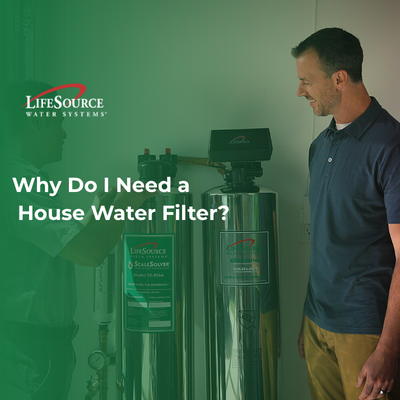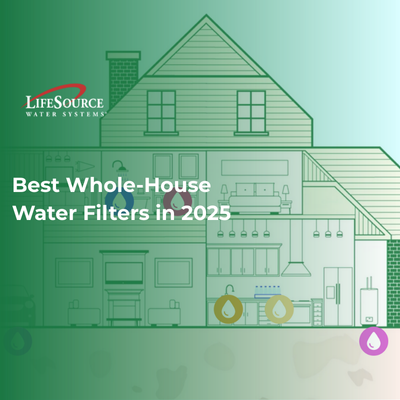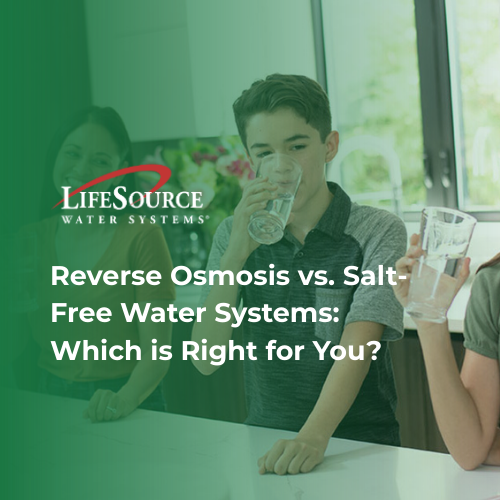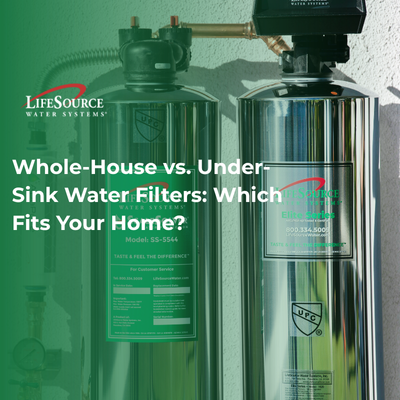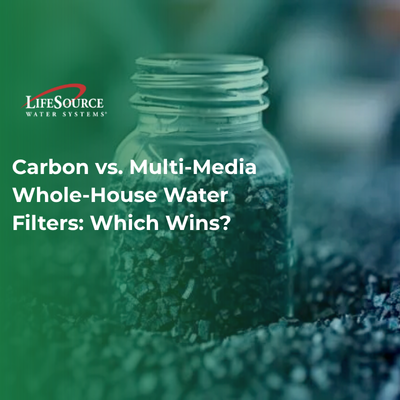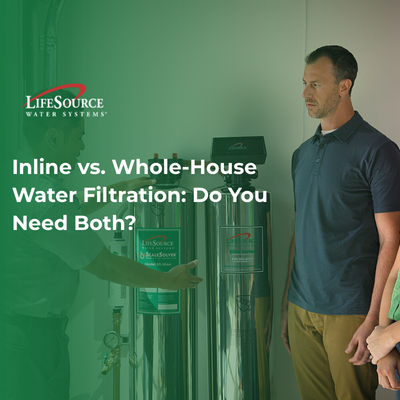
What you need to know before choosing a home water system.
The quality of your home water has a lot to do with where you live. Water quality can also change over time, as your city’s water resources can alter from year to year. It’s also possible that hard water may not be the culprit of your water problems. Other factors, such as the chlorine and chloramine levels in your water, can cause skin irritation, dry hair, faded clothes and make your water taste bad.
If your neighborhood has hard water, or you’re wondering if hard water is something you should worry about, then here are a few clarifications.

Hard water is rich in calcium and magnesium. These minerals are not contaminants, they're natural nutrients. The World Health Organization notes that minerals present in water are an important source of essential nutrients. These minerals are all part of our nutritional balance and drinking water that contains minerals is a great way to boost your mineral intake. Water that has been purified to remove natural minerals has a more acidic pH level.
Acidic water is less hydrating for your body and can even pull nutrients out of your body. Filtered water that contains minerals, is the most akin to the "Mountain Spring Water" found in water bottles. It tastes great and it's good for people, plants and animals. Calcium and magnesium both help with bone strength, and magnesium helps reduce inflammation and stress in the body.
Of more concern to our health, are the chemicals, dirt and possible disinfection byproducts (DBPs) that can be found in tap water
It all comes down to the type of plumbing in your home. Many homes built between the early 1950s and late 1970s, were constructed using galvanized steel pipes. Calcium minerals like to attach to galvanized steel. This is commonly called limescale and can lead to clogged pipes. However, in the late 1970s there was a widespread return to using copper piping, and now plastic. Copper and plastic pipes are more resistant to scale deposits.
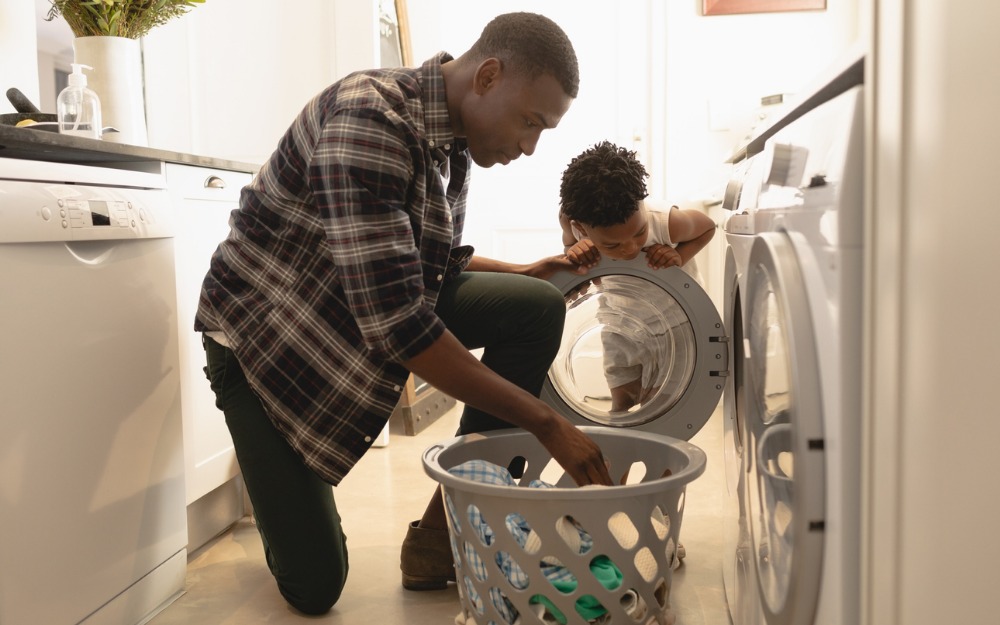
Did you know that tap water can contain more chlorine than a typical swimming pool? Chlorine, a bleaching chemical, strips your hair of essential proteins and dries out your skin. Chlorine can leave you with lackluster hair and irritate sensitive skin.
Over time, the chlorine in your water fades laundry and damages fabric integrity, until clothing becomes translucent or easily torn. Chlorine also increases the surface tension of your water, which makes it harder for detergent to work optimally.
When you filter out chlorine, detergent works better and you won’t have to use as much to clean your laundry. A home water system that removes Chlorine from your water may be a better solution for more hydrated skin, healthier hair and lasting color brightness.
Water softeners are mainly focused on aesthetics. Salt-based water softeners do not filter or protect your water from bacteria. “Soft water” is when minerals have been exchanged for sodium. After water passes through a water softener, it no longer has natural minerals and still contains contaminants like chlorine, chloramines and dirt. This is why water softeners come with brine tanks that need to be continually re-filled with salt pellets. All that salt ends up in your home water, making it feel slimy and have a poor taste. A reverse osmosis filter is then needed to provide palatable, filtered water. Since R.O. systems are limited to one faucet in the home, many people end up buying bottled water. If having clean drinking water easily accessible for drinking, cooking and bathing is a priority for you, then you’ll want to make sure to look for a whole house water filtration system.

Water softeners and reverse osmosis systems can waste hundreds of gallons of water per household every month. Water softeners can spill (or potassium chloride) into city waste streams, polluting waterways and damaging plant and aquatic life. Water treatment is expensive and water that contains salt is unable to be recycled or reused for irrigation and farming.
As the salinity of water increases, the more expensive it is to filter out, increasing the cost of water treatment for residences and businesses.
While salt from water softeners is not the only source of water pollutants, it is one of the easier problems to correct. The less salt that each household dumps into municipal water lines, the better for the environment and water conservation.
But wait! How do I fix my hard water problems without using all that salt?! Luckily, advances in technology have made it possible for certain water systems to condition hard water without using salt or other additives.
Having quality water is a wonderful way to care for your family and home. It's important to understand how your water can be improved so you can find the best method of treatment. From filtration to reducing mineral buildup and destroying harmful bacteria, LifeSource Water Systems has a solution. A LifeSource Whole House Water System filters and conditions all the water in your home, giving you delicious, gentle water from every faucet and shower.


